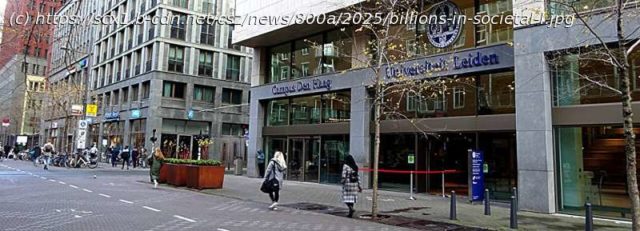A cap on the number of international students at the five comprehensive Randstad universities will have a significantly negative impact on the Dutch economy. The gross domestic product (GDP) is expected to decline by approximately 4 to 5 billion euros. Regions, businesses, and society as a whole will feel the substantial economic consequences.
A cap on the number of international students at the five comprehensive Randstad universities will have a significantly negative impact on the Dutch economy. The gross domestic product (GDP) is expected to decline by approximately 4 to 5 billion euros. Regions, businesses, and society as a whole will feel the substantial economic consequences.
The Randstad region, which accounts for half of the Dutch GDP—the economic value of the country—will be hit hardest: 82% of the loss will occur here. The most affected sectors are business services (39%), financial institutions (20%), and the public sector (10%). These findings come from recent research conducted by SEO Economic Research, commissioned by Leiden University, Utrecht University, Erasmus University Rotterdam, the University of Amsterdam, and Vrije Universiteit Amsterdam.
The SEO study highlights the need for a balanced internationalization policy, as demonstrated earlier this year by the Dutch universities in their joint self-regulation proposal. They urge political parties to incorporate these findings into the development of a National Talent Strategy, in which international students are essential for both the regions and the Randstad.
International students are of great value to the Dutch economy, according to SEO Economic Research.
Start
United States
USA — IT Cap on international students projected to cost Dutch economy up to €5...






